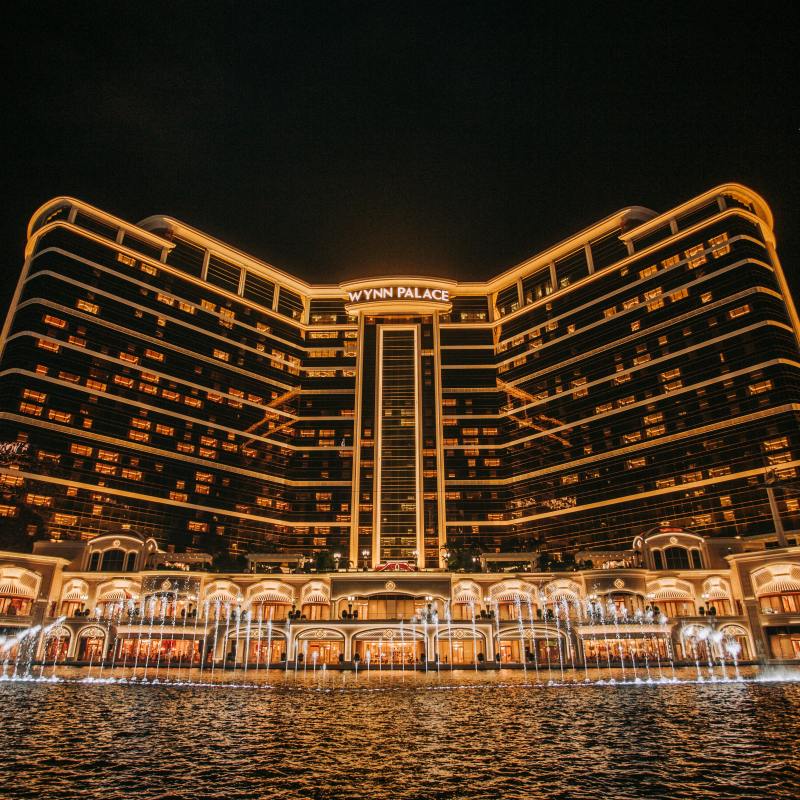
When you imagine ultra-lux casinos and flashy nightlife, what city comes to mind?
Videos by TravelAwaits
Almost every American would think Las Vegas, at least in passing.
Not only is Las Vegas the country’s leading destination for no-holds-barred parties, but it’s also our hotspot for larger-than-life casinos—not those stinky little riverboats common to the Mississippi.
But what if I told you that Las Vegas isn’t actually the world’s gambling capital?
That prestigious title belongs to Macau, a special economic zone located on China’s southeastern coast near Hong Kong. Even though most Americans have never heard of Macau, it dwarfs Las Vegas each year in terms of the number of visitors, total revenue, and the size of its casino-resorts.
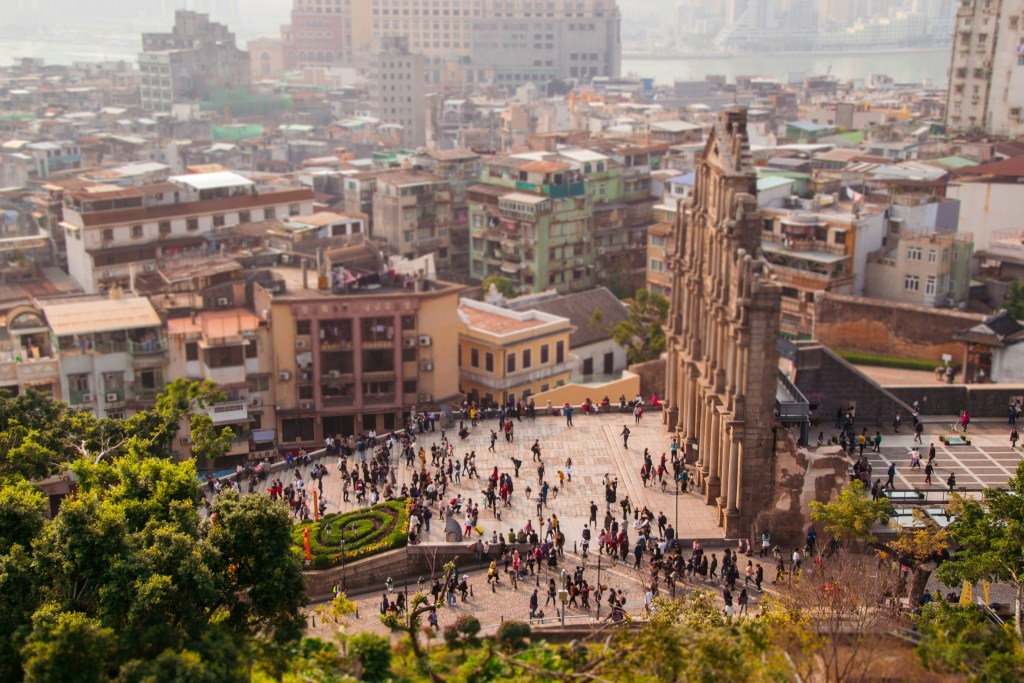
A brief history: Macau
Before I start comparing Las Vegas vs Macau, let’s cover what Macau is.
This city is located on a series of islands amid the Pearl River delta. Similar to Hong Kong, Macau became a European colony, falling into Portuguese hands.
Starting in 1557, Portugal maintained control of the region. For centuries, it was a hotspot for trading—and cultural mingling. Though controlled by the Portuguese, they took a more hands-off approach than other colonial forces.
Around the mid-1800s, locals started gambling—which the Portuguese embraced. Soon, casinos were opening legally across Macau’s islands.
By the time Portugal annexed the territory to China in 1999, gambling on the mainland had been declared illegal. That quickly turned Macau into a hotspot for hundreds of millions of gamblers from cities like Beijing, Shanghai, Hangzhou, and even Hong Kong.
Soon, casino companies from Vegas and Australia were flooding to set up resorts in Macau. By 2007, the area’s casinos were outperforming those on the Vegas Strip in terms of revenue.
So what can you expect from a visit to Las Vegas vs Macau? Here are the key differences.
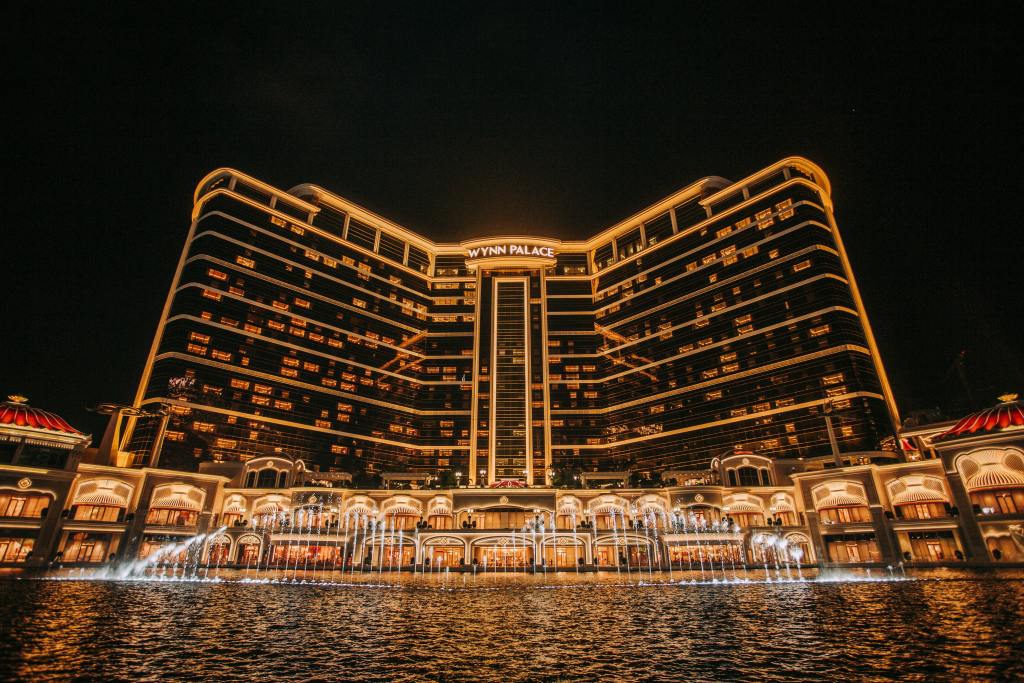
Macau is more heavily geared toward gamblers
As I just mentioned, gambling on China’s mainland is illegal.
That’s an interesting fact considering Chinese culture doesn’t take a hard stance on gambling. In the US, it might still be viewed as immoral by many groups. In China, as with other East Asian countries, gambling is more readily viewed as a hobby.
Macau is overwhelmingly geared to meet the needs of gamblers. Baccarat is the game of choice by a huge margin, beating out Vegas favorites like poker and blackjack.
Unlike Vegas, most casinos in Macau don’t allow alcohol. Some have also banned smoking.
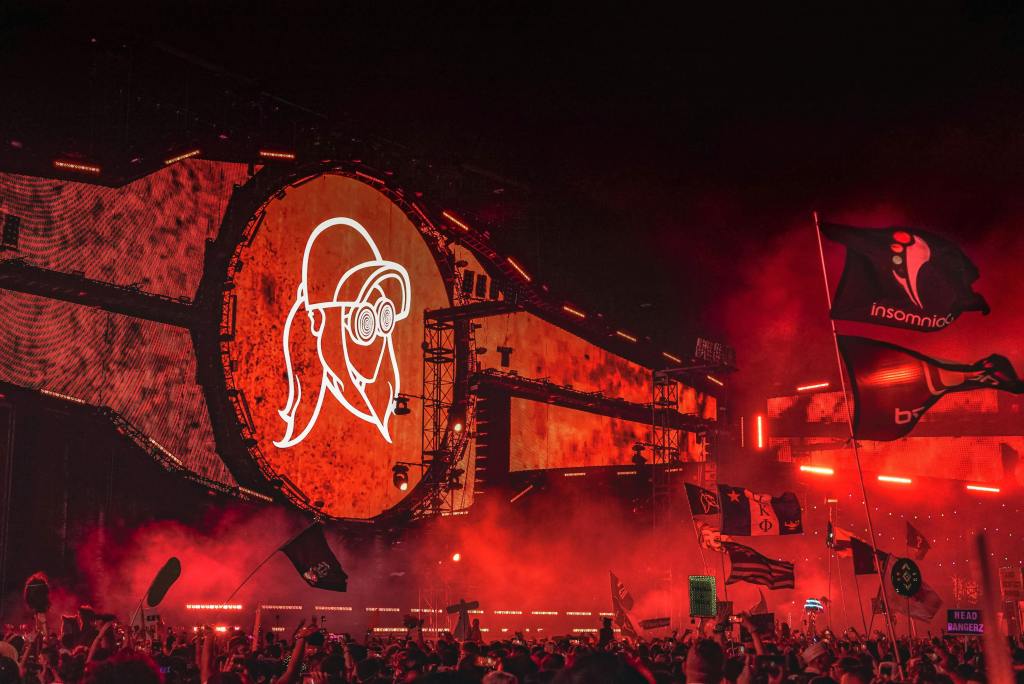
Las Vegas offers more in terms of general nightlife
Many people who travel to Las Vegas have no real plans to spend their time at a casino.
Sure, they might spin a few slot reels or play a game of blackjack, but the focus is likely elsewhere. Because of this, Las Vegas offers a dizzying reel of activities. The goal is to meet the interests of non-gambling visitors.
There’s the Sphere, to name a big-name and recent project.
But there are also dozens of smaller and harder-to-find gems, from playgrounds that let adults rent out construction equipment to light shows from James Turrell hidden inside Louis Vuitton stores to one of the world’s most haunted museums to relaunched F1 Grand Prix races.
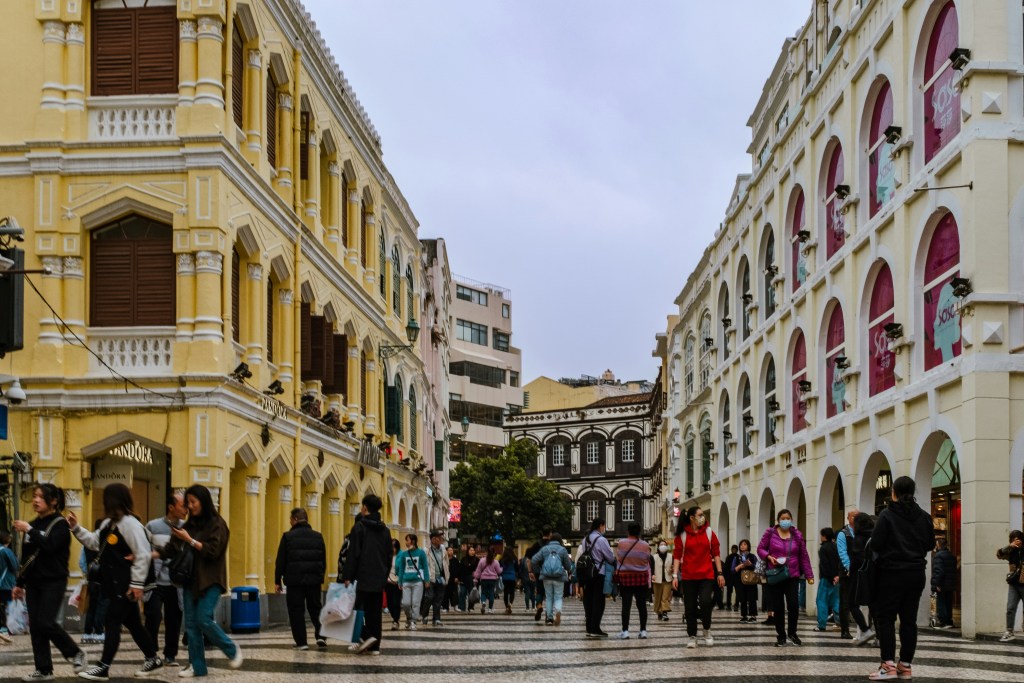
Macau has an intercultural angle
As outlined above, the Portuguese were a core part of Macau’s cultural outlook for 442 years.
Compared to other European colonial forces, the Portuguese were a lot more willing to intermarry and mingle with locals. Macau still carries the legacy of this melting pot period.
You’ll notice plenty of Portuguese colonial architecture throughout the islands, along with the remnants of a beautiful cathedral façade (St Paul). Some sites are even protected by UNESCO. Even the street signs are still written in Portuguese and Mandarin.
For these reasons, locals don’t consider themselves Chinese. Instead, they’re distinctly Macanese. This is similar to how locals in Singapore identify—as a mish-mash of Chinese, Indian, Malay, and other influences.
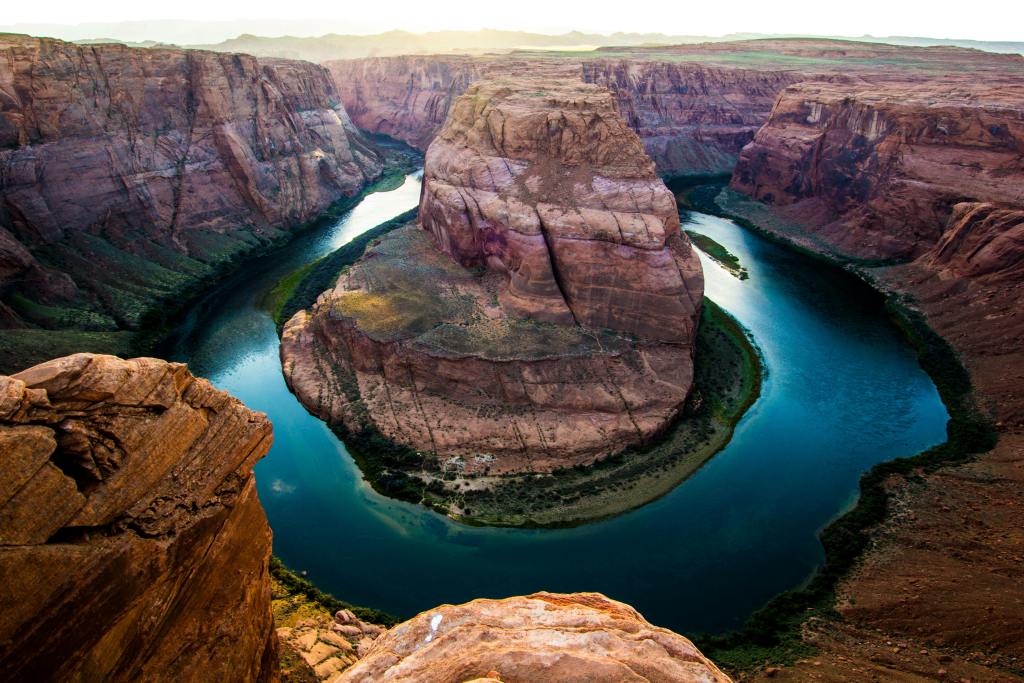
Las Vegas puts you closer to natural wonders
Las Vegas doesn’t really have a cultural angle—unless you consider partying a form of culture. (I wouldn’t really argue with you if you did.)
But one of the most unique things about traveling to Las Vegas is how close you’ll be to natural wonders. When I visited the city, I took a plane ride to the nearby Grand Canyon. In terms of day trips worth taking, the Grand Canyon is definitely up there.
But Vegas visitors are also close to other stunning desert wonders like Zion National Park, Fly Geiser, Lake Mead, and Red Rock Canyon.
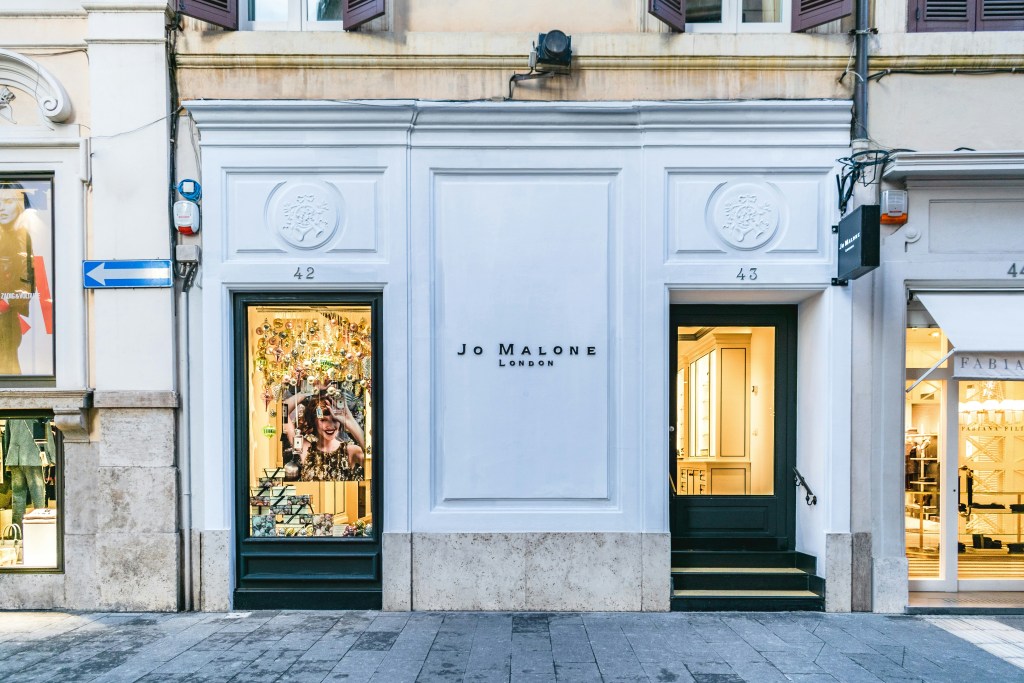
Macau offers steeper luxury
Let me make one thing clear: Macau usurps Las Vegas in terms of casino revenue.
But that doesn’t mean Vegas isn’t earning more when you clump in its myriad of entertainment sectors. From strip clubs to the Sphere, people spend big in Vegas every single day of the year.
That being said, Macau does things a bit differently.
Vegas might see big-name celebs and the ultra-rich stop by for a few days, but Macau tends to welcome more high-profile clientele. And they’ll shell out millions while they’re in town.
For this reason, Macau’s spas, resorts, shopping malls, and restaurants are just a pinch more luxurious than what you’ll find in Las Vegas. A good way to describe this difference is that Vegas has no Michelin-star restaurants, while Macau has 18.
